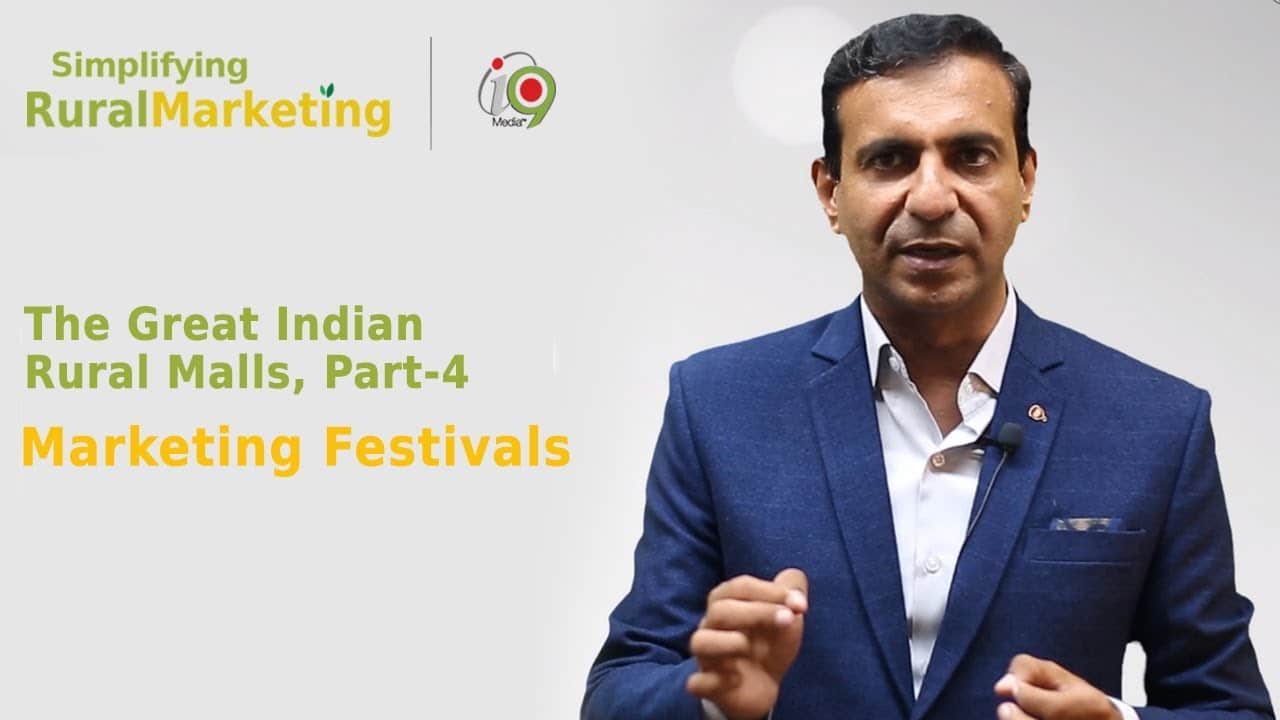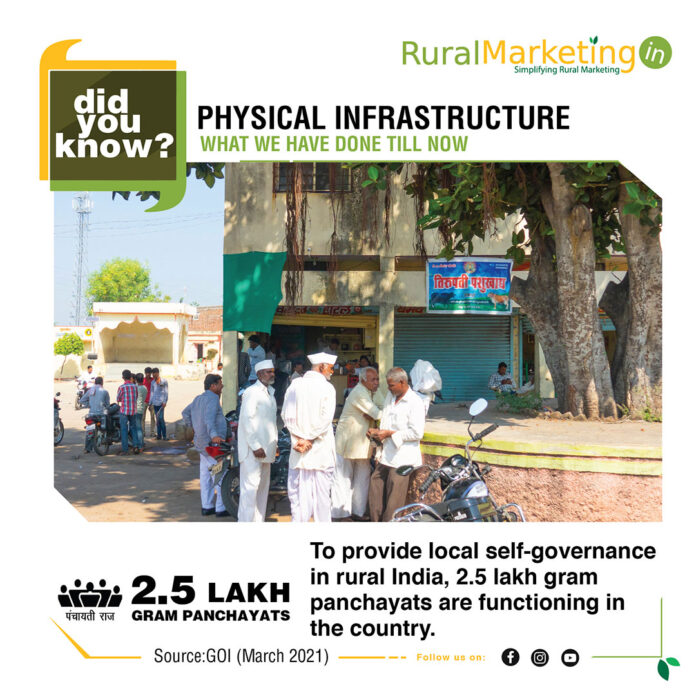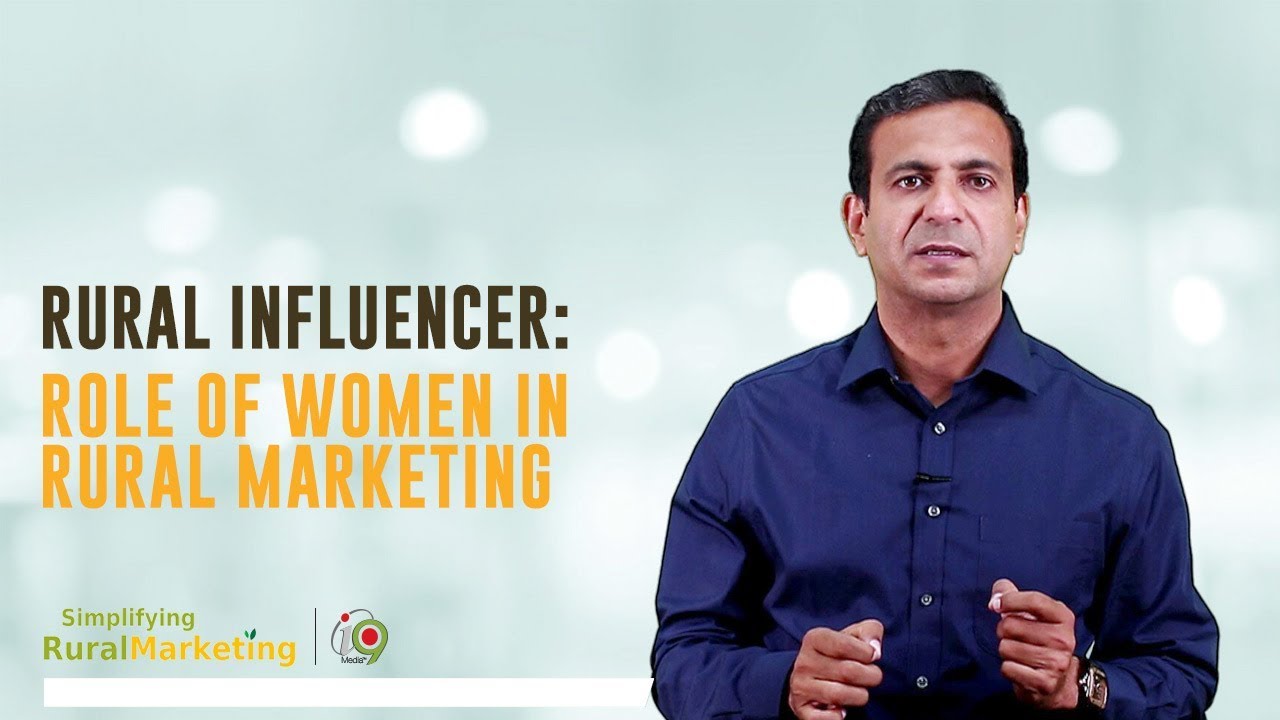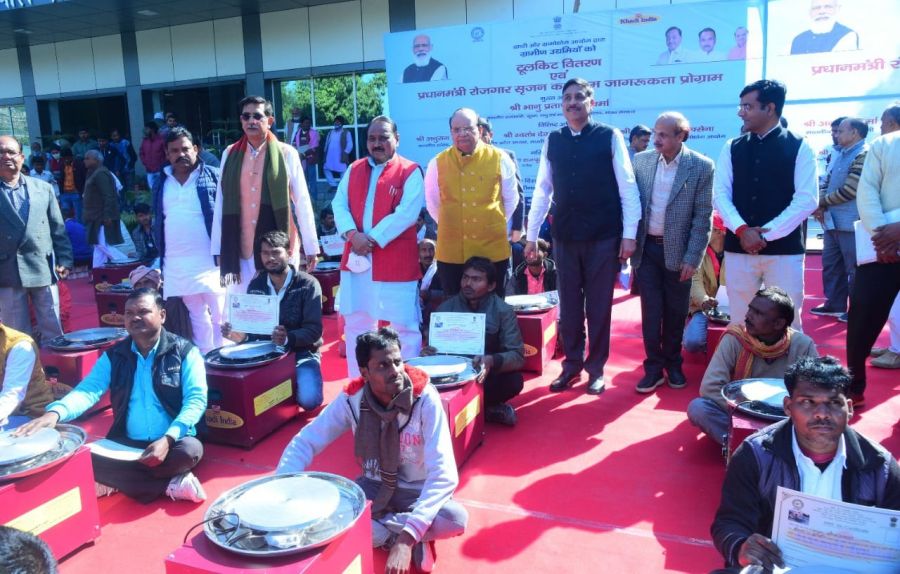
#Simplifying Rural Marketing
#Videos
The Great Indian Rural Malls, Part – 4 Marketing Rural Festivals
admin
Oct 26, 2018

01
Simplifying Rural Marketing
Videos
The Great Indian Rural Mall – Part 5 | Expaloring
Nov 09, 2018

02
Simplifying Rural Marketing
Videos
The Great Indian Rural Mall – Part 6 | Exploring
Dec 14, 2018

03
Uncategorized
The Great Indian Rural Mall Part -6: Exploring Agriculture Fairs
Dec 15, 2018

04
Simplifying Rural Marketing
Videos
Rural Influencers E1: Role of Women in Rural Marketing
Apr 19, 2019

01
Simplifying Rural Marketing
Videos
The Great Indian Rural Malls, Part – 4 Marketing Rural
Oct 26, 2018

02
Simplifying Rural Marketing
Videos
The Great Indian Rural Mall – Part 5 | Expaloring
Nov 09, 2018

03
Simplifying Rural Marketing
Videos
The Great Indian Rural Mall – Part 6 | Exploring
Dec 14, 2018

04
Uncategorized
The Great Indian Rural Mall Part -6: Exploring Agriculture Fairs
Dec 15, 2018
Trending Topics

01
Rural Facts
Rural Fact 4
admin
Dec 17, 2021

02
Rural Facts
Rural Fact3
admin
Dec 17, 2021

03
Rural Facts
Rural Fact2
admin
Dec 17, 2021

04
Rural Facts
Rural Fact1
admin
Dec 17, 2021

01
Rural Talks
Videos
Rural Influencers E5: Reaching last mile with Post
admin
May 31, 2019

02
Rural Talks
Uncategorized
Videos
Utilising the Youth Power in Rural Marketing
admin
Jun 17, 2019

03
Rural Talks
Videos
Rural Marketing Strategies Post Covid decoded
admin
Apr 10, 2020

04
Rural Talks
Videos
Entrepreneurship for Livelihood in Rural India
admin
Apr 18, 2020

01
Uncategorized
The Great Indian Rural Mall Part -6: Exploring
admin
Dec 15, 2018

02
Rural Talks
Uncategorized
Videos
Utilising the Youth Power in Rural Marketing
admin
Jun 17, 2019

03
Uncategorized
Role of Women in Rural Marketing
admin
Apr 19, 2020

04
Uncategorized
7 Simple Secrets to Rocking Rural Marketing Opportunities
admin
May 18, 2020

#RM Weekly Wrap
Rural Marketing Business Wrap, week #31
admin
Aug 03, 2021

01
Rural Facts
Rural Fact 5
admin
Dec 17, 2021

02
Rural Facts
Rural Fact 6
admin
Dec 17, 2021

03
Rural Facts
Rural Fact 7
admin
Dec 17, 2021

04
Rural Facts
Rural Fact 8
admin
Dec 17, 2021

01
Rural Talks
Videos
Entrepreneurship for Livelihood in Rural India #3
admin
Jun 17, 2024

02
Rural Talks
Videos
Deep Dive into Rural Bandwagon. Watch Dinesh D Dasani
admin
May 14, 2022

03
Rural Talks
Transforming Rural Health Through Technology. Watch Sougat Chaterjee
admin
Jul 02, 2020

04
Rural Talks
Videos
Transforming Rural Health Through Technology. Watch Sougat Chaterjee
admin
Jul 02, 2020

01
Uncategorized
The Great Indian Rural Mall Part -6: Exploring Agriculture
admin
Dec 15, 2018

02
Rural Talks
Uncategorized
Videos
Utilising the Youth Power in Rural Marketing
admin
Jun 17, 2019

03
Uncategorized
Role of Women in Rural Marketing
admin
Apr 19, 2020

04
Uncategorized
7 Simple Secrets to Rocking Rural Marketing Opportunities in
admin
May 18, 2020
Most Reading

01
Simplifying Rural Marketing
Videos
The Great Indian Rural Mall –
Dec 14, 2018

02
Uncategorized
The Great Indian Rural Mall Part
Dec 15, 2018

03
Simplifying Rural Marketing
Videos
Rural Influencers E1: Role of Women
Apr 19, 2019

04
Rural Talks
Videos
Rural Influencers E5: Reaching last mile
May 31, 2019

05
Rural Talks
Uncategorized
Videos
Utilising the Youth Power in Rural
Jun 17, 2019

06
Rural Talks
Videos
Rural Marketing Strategies Post Covid decoded
Apr 10, 2020
Apply For Breaking News
Published Video
Rural Talks
Videos

Rural Talks
Videos


admin
Apr 10, 2020
Rural Influencers E1: Role of Women in Rural Marketing
Expert Rural Talk
(8)
View
RM Weekly Wrap
(43)
View
Rural Facts
(20)
View
Uncategorized
(11)
View
Videos
(19)
View
Entrepreneurship for Livelihood in Rural India #3
admin
Jun 17, 2024

Uncategorized
Police Supports Peaceful Protestors in Los Angeles #5
admin
Jun 06, 2024

RM Weekly Wrap
Rural Marketing Business Wrap, Week#1
admin
Nov 01, 2022

Rural Talks
Videos
Deep Dive into Rural Bandwagon. Watch Dinesh D
- admin
- Dec 17, 2021
Rural Fact 6
- admin
- Dec 17, 2021
Rural Fact 7
Rural Influencers E5: Reaching last mile with Post Offices
admin
May 31, 2019

01
Simplifying Rural Marketing
Videos
The Great Indian Rural Malls, Part – 4
admin
Oct 26, 2018

02
Simplifying Rural Marketing
Videos
The Great Indian Rural Mall – Part 5
admin
Nov 09, 2018

03
Simplifying Rural Marketing
Videos
The Great Indian Rural Mall – Part 6
admin
Dec 14, 2018

04
Uncategorized
The Great Indian Rural Mall Part -6: Exploring
Simplifying Rural Marketing

Simplifying Rural Marketing
Videos
The Great Indian Rural Mall – Part 6 | Exploring Agriculture Fairs
admin
Dec 14, 2018

Simplifying Rural Marketing
Videos
The Great Indian Rural Mall – Part 5 | Expaloring the Mandis
admin
Nov 09, 2018
Trending Topics
The Great Indian Rural Malls, Part – 4 Marketing Rural Festivals
The Great Indian Rural Mall – Part 5 | Expaloring the Mandis
The Great Indian Rural Mall – Part 6 | Exploring Agriculture Fairs
The Great Indian Rural Mall Part -6: Exploring Agriculture Fairs
Rural Influencers E1: Role of Women in Rural Marketing
admin
Trending Topics

01
Simplifying Rural Marketing
Videos
The Great Indian Rural Malls, Part –

02
Simplifying Rural Marketing
Videos
The Great Indian Rural Mall – Part

03
Simplifying Rural Marketing
Videos
The Great Indian Rural Mall – Part
Newspaper Tag
Advertising
Agarbatti Making
Agri Input
agriculture
Agritech
Agriwatch
amul
Artificial Intelligence
Automobile
Bee Boxes
Branding
Bundelkhand
Communication
Consumer Behaviour
Consumer Durable
Consumer Products
Crop Cutting Experiments
Crop Insurance
Data Analytics
Digital commerce
Digitisation
Employment
Entrepreneurship
FMCG
GIS
Global Market Insights
IAR
Khadi
Kishore
KVIC
Leads Connect
Lending Institutions
marketing
MFI
Microfinance
Microfinance Institutions
Mudra Yojana
NBFC
Pharma
Pidilite Industries
PMEGP
PMFBY
PMMY
Regional Rural Banks
Remote Sensing
rural advertising
Rural Artisans
rural development
Rural India
rural marketing
rural markets
Rural Sales
Shishu
Supply Chain
Tarun
Technological Disruptions
Technology
Village Industries

Selected News

Uncategorized
Jun 06, 2024
Police Supports Peaceful Protestors in Los Angeles #5
admin
3 min read

Uncategorized
Dec 20, 2021
KVIC rolls out self-employment schemes for rural artisans in Bundelkhand
admin
2 min read

Uncategorized
Aug 02, 2021
Rural economy shows better prospects of consumption in 2021
admin
2 min read
Rural facts

Rural Facts
Dec 17, 2021
Rural Fact 5
admin
0 min read

Rural Facts
Dec 17, 2021
Rural Fact 6
admin
0 min read

Rural Facts
Dec 17, 2021
Rural Fact 7
admin
0 min read
Online Voating

This may be the latest case of post aggression emigration in Ukraine. But it is unlikely to be the final stage for millions of people to leave the country. These people do not want
YES55%
NO50%









